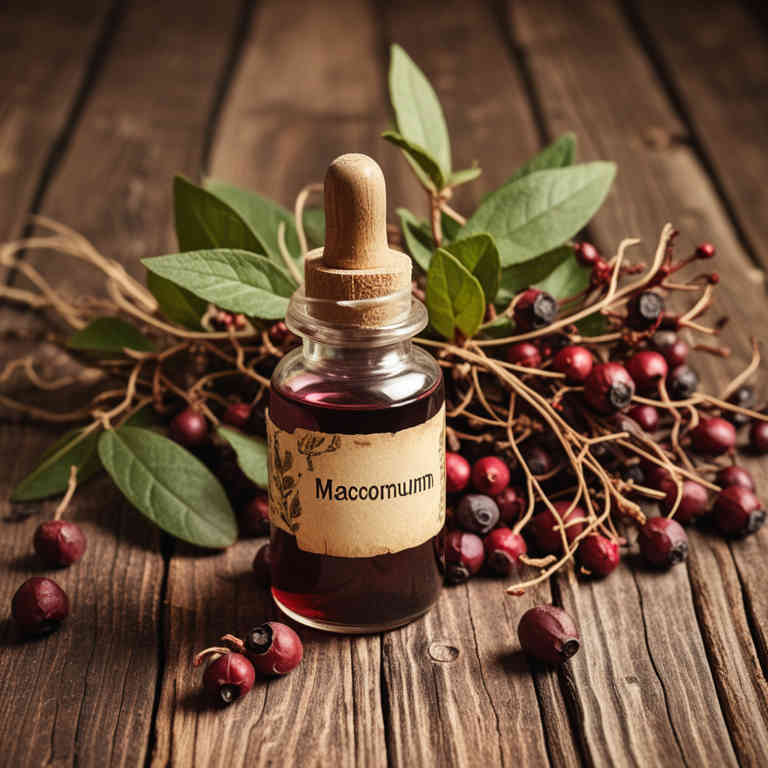Vaccinium macrocarpon tincture for medicinal use

Vaccinium macrocarpon tincture is a concentrated herbal preparation made from the berries of the wild cranberry plant.
It is commonly used in herbalism for its potential health benefits, particularly in supporting urinary tract health. The tincture is often taken internally to help prevent urinary tract infections and promote overall bladder function. It is also believed to have antioxidant properties that may support immune health.
This preparation is typically diluted in water or another liquid before consumption to ensure safe and effective use.
Uses
Vaccinium macrocarpon tincture has been used to treat digestive issues, colds, and respiratory conditions for centuries.
Historically, it was valued by Indigenous peoples of North America for its medicinal properties and was also used by early European settlers. Traditionally, the tincture was prepared from the berries of the American cranberry plant, which were believed to have healing properties. In modern times, it is still used in herbal medicine to support urinary tract health and as a mild digestive aid.
Its popularity has grown due to its natural ingredients and potential antioxidant benefits.
Benefits
Vaccinium macrocarpon tincture has health benefits such as supporting immune function, promoting digestive health, and providing antioxidant properties.
This preparation is derived from the berries of the wild cranberry plant, which are rich in polyphenols and other bioactive compounds. It may help in preventing urinary tract infections due to its ability to inhibit bacterial adhesion to urinary tract cells. The tincture is also believed to support cardiovascular health by improving blood flow and reducing oxidative stress.
Overall, it is a valuable herbal remedy with potential therapeutic applications in various health conditions.
Constituents
Vaccinium macrocarpon tincture active constituents include anthocyanins, flavonoids, proanthocyanidins, and tannins.
These compounds are known for their antioxidant and anti-inflammatory properties. Anthocyanins contribute to the deep red color of the fruit and support cardiovascular health. Flavonoids and proanthocyanidins help improve circulation and may support urinary tract health.
Tannins provide astringent properties that can aid in reducing inflammation and supporting digestive health.
Preparation
To make Vaccinium macrocarpon tincture, first gather fresh or dried cranberries, which are the fruit of the Vaccinium macrocarpon plant.
Wash the cranberries thoroughly and place them in a glass jar. Add a high-proof alcohol, such as vodka or grain alcohol, to cover the cranberries completely. Let the mixture sit in a dark place for 4 to 6 weeks, shaking the jar weekly.
After the steeping period, strain the liquid through a fine mesh strainer or cheesecloth to separate the tincture from the solids.
Side Effects
Vaccinium macrocarpon tincture may lead to gastrointestinal discomfort, including nausea, vomiting, and diarrhea, especially when taken in high doses.
It can also cause allergic reactions in individuals sensitive to the plant, manifesting as rash, itching, or swelling. Long-term use may interfere with certain medications due to its impact on liver enzymes. Overconsumption might lead to hypoglycemia, particularly in people with diabetes.
It is important to consult a healthcare professional before using this tincture, especially for those with preexisting medical conditions.